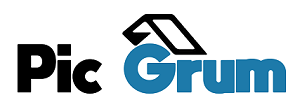
The rise of remote work has changed how employees manage various administrative aspects of their professional lives, including obtaining medical documentation when ill. Gone are when workers had to physically visit a doctor’s office while feeling unwell to get documentation for sick leave. Now, digital alternatives offer convenience without compromising legitimacy.
Remote work revolution
Remote work has permanently altered workplace dynamics across numerous industries. As more companies adopt flexible arrangements, employees face new challenges and opportunities in managing their health documentation. Taking time off when sick still requires proper documentation, but remote workers may be far from their regular healthcare providers or company-approved clinics. This geographical disconnect creates a need for accessible solutions within the digital workspace.
Benefits for remote workers
Virtual healthcare options present numerous advantages for those working from home or distant locations. Workers can avoid travelling when feeling ill, reducing the spread of contagious conditions and allowing proper rest. The digital process typically takes less time than traditional in-person visits, enabling employees to focus on recovery rather than administrative tasks. Many services offer appointments outside standard business hours, accommodating different time zones and work schedules that remote employees often maintain.
Types of online medical certificates

Digital health services typically offer various forms of medical documentation based on different needs:
- Standard sick notes for common illnesses
- Specialized documentation for chronic conditions
- Return-to-work clearances after recovery periods
- Mental health-related documentation
- Fitness certifications for specific job requirements
Each type serves distinct purposes within workplace health policies and requires different assessment levels from healthcare professionals.
Virtual consultation process
The process begins with scheduling a telehealth appointment through a reputable service. During the consultation, qualified healthcare professionals assess symptoms through video calls, asking relevant questions to determine the nature and severity of the condition. Many services that issue medical certificate online maintain strict medical standards while offering the convenience of digital delivery. These certificates contain the same essential information as traditional documents: the patient’s details, condition assessment, recommended recovery time, and the practitioner’s credentials and signature.
Limitations and considerations
Despite their convenience, digital medical certificates have some limitations worth noting:
- Not all conditions can be appropriately assessed through virtual consultations
- Some employers may have specific policies requiring in-person evaluation
- Insurance companies might have different requirements for claims processing
- Certain specialized roles may need physical examinations for safety reasons
Workers should always check their company policies before pursuing digital options for medical documentation.
Best practices for employers
Companies embracing remote work should develop clear policies regarding medical documentation. Establishing guidelines about acceptable sources of medical certificates helps prevent confusion and ensures consistency. Training HR staff to verify digital documentation maintains system integrity while respecting employee privacy concerns. Creating a streamlined submission process for digital health documents reduces administrative friction during already stressful periods of illness.
Digital health records management
As more aspects of healthcare move online, employees benefit from maintaining organized digital health records. Keeping copies of all medical certificates in secure cloud storage ensures easy access when needed for reference. Setting calendar reminders for follow-up appointments or documentation renewals helps manage ongoing health situations without disrupting work responsibilities. The shift toward digital health documentation mirrors the transition to remote work, prioritizing accessibility, efficiency, and adaptability while maintaining professional standards. As these systems evolve, employers and employees will find increasing value in their streamlined processes.






